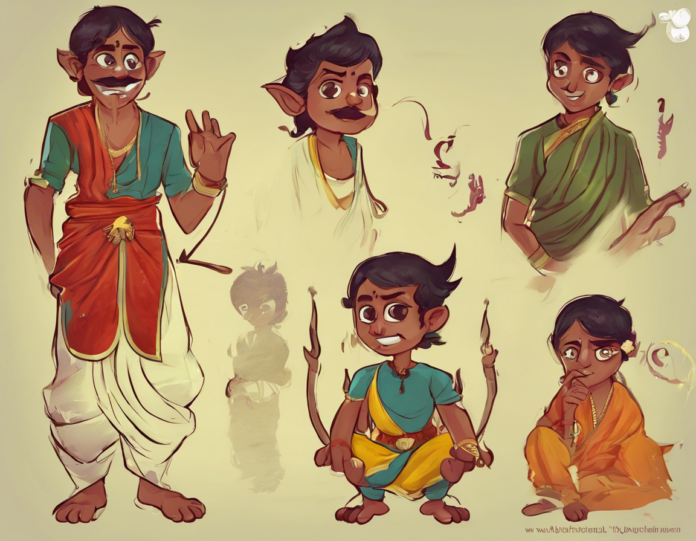Intertwined with rich traditions, artistic expressions, and a tapestry of diverse influences, the culture and heritage of Telugu-speaking regions in India are a treasure trove of knowledge and creativity. From its vibrant festivals to its distinctive music and dance forms, the Telugu culture is a celebration of centuries-old traditions that continue to thrive and evolve. Let’s embark on a journey to uncover the enchanting tales of Telugu culture and heritage.
The Origins of Telugu Culture
The Telugu language, one of the classical languages of India, has a history dating back to antiquity. Predominantly spoken in the southern Indian states of Andhra Pradesh and Telangana, Telugu has a rich literary tradition that has been upheld through the ages. The earliest known inscription in Telugu dates back to 575 CE, indicating the ancient roots of this language.
Festivals and Celebrations
Festivals play a significant role in the lives of the people in Telugu-speaking regions. Sankranti, Ugadi, and Bonalu are among the major festivals celebrated with much fervor and joy. Sankranti, also known as Pongal, marks the beginning of the harvest season and is a time for rejoicing and thanksgiving. Ugadi, the Telugu New Year, symbolizes new beginnings and is celebrated with traditional rituals and feasts. Bonalu is a festival dedicated to the Goddess Mahakali and is marked by colorful processions and folk performances.
Dance Forms and Music
Kuchipudi and Perini are two classical dance forms that have originated from Telugu-speaking regions. Kuchipudi, known for its intricate footwork and expressive storytelling, is performed in the Kuchipudi village of Andhra Pradesh. Perini Thandavam, a male dance form traditionally performed by warriors, is characterized by its energetic movements and rhythmic patterns.
The Carnatic music tradition, with its roots in South India, holds a special place in Telugu culture. Renowned composers like Tyagaraja, Annamacharya, and Shyama Shastri have enriched the musical heritage of the region with their compositions. The melodic strains of Carnatic music continue to resonate in both traditional and contemporary settings.
Art and Architecture
Telugu culture is also renowned for its artistic expressions and architectural marvels. The Kalahasti temple in Andhra Pradesh, with its intricate carvings and architectural grandeur, is a testament to the artistic prowess of the region. The Vijayanagara Empire, known for its spectacular ruins at Hampi, showcases the architectural splendor that once defined the landscape.
Cuisine and Culinary Delights
No exploration of Telugu culture is complete without delving into its culinary heritage. Pulihora (tamarind rice), Pesarattu (moong dal dosa), and Hyderabadi biryani are just a few of the culinary delights that tantalize the taste buds of connoisseurs. The blend of spices, flavors, and techniques in Telugu cuisine reflects the region’s cultural diversity and historical influences.
Folklore and Mythology
Telugu folklore is replete with enchanting tales of gods, goddesses, and mythical beings. The stories of Tenali Ramakrishna, the witty poet in the court of Krishnadevaraya, and Srikakula Andhra Mahavishnuvu Katha, an epic narrative of righteous kings and divine interventions, continue to captivate audiences across generations.
Literature and Poetry
Telugu literature boasts a rich heritage spanning poetry, prose, and drama. The Andhra Mahabharata, an adaptation of the Indian epic Mahabharata, and the works of modern poets like Sri Sri and Devulapalli Krishna Sastry showcase the depth and diversity of Telugu literary tradition. The lyrical beauty of Telugu poetry, with its intricate metaphors and profound emotions, has left an indelible mark on the cultural landscape.
Frequently Asked Questions (FAQs)
- What is the significance of Ugadi in Telugu culture?
-
Ugadi, the Telugu New Year, symbolizes new beginnings, prosperity, and the harvest season. It is celebrated with traditional rituals, special dishes, and cultural events.
-
What are some famous landmarks in Telugu-speaking regions?
-
Some famous landmarks include the Charminar in Hyderabad, the Venkateswara Temple in Tirupati, and the Srisailam Mallikarjuna Temple in Andhra Pradesh.
-
How is Kuchipudi dance distinct from other classical dance forms?
-
Kuchipudi dance is known for its graceful movements, intricate footwork, and expressive storytelling through mudras (hand gestures). It combines elements of both dance and drama in its narrative style.
-
What are some traditional dishes in Telugu cuisine?
-
Traditional Telugu dishes include pulihora (tamarind rice), gongura pachadi (sorrel leaves chutney), and ariselu (sweet rice cakes). These dishes reflect the unique flavors and culinary techniques of the region.
-
Who are some renowned Telugu poets and literary figures?
- Renowned Telugu poets include Nannayya, Tikkana, and Yerrapragada. Modern literary figures like Srirangam Srinivasa Rao and Viswanatha Satyanarayana have also made significant contributions to Telugu literature.
Embark on a journey through the enchanting tales of Telugu culture and heritage, where every facet reveals a unique blend of tradition, creativity, and timeless wisdom.


Recent comments